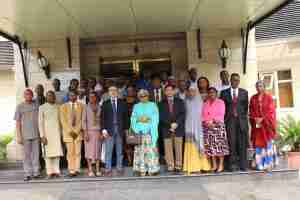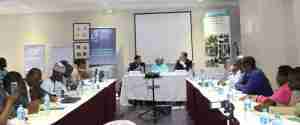Nigerian agriculture continues to be an important contributor to the national economic growth. This contribution crucially depends on the productivity growth in the agriculture sector. The total factor productivity of Nigerian agriculture in turn depends on the innovation based knowledge famers have and apply in their crop, livestock, and fisheries production activities. Yet, the major source of knowledge and its delivery namely the public extension system has been facing institutional and capacity challenges in the past. There has been increased call for reforming the extension system in developing countries in the last 10 years and countries such as Brazil, China, and India have moved ahead with such reforms. In Nigeria, there is a similar need to design and implement the extension policy and system reforms to achieve the expected productivity growth envisioned both in the Agricultural Transformation Agenda (ATA) and more recently with the Agriculture Promotion Policy (APP).




 Dr Suresh Babu (L), Mrs Kamira Babangida (C) and Dr George Mavrotas (R) giving their opening remarks at the Training Workshop (c) 2018 IFPRI/Bisola Oyediran
Dr Suresh Babu (L), Mrs Kamira Babangida (C) and Dr George Mavrotas (R) giving their opening remarks at the Training Workshop (c) 2018 IFPRI/Bisola OyediranThis training workshop was part of the activities of the third year of the Feed the Future Nigeria Agricultural Policy Project. The project is jointly implemented by IFPRI’s Nigeria Strategy Support Program and Michigan State University with generous funding from the United States Agency for International Development.

